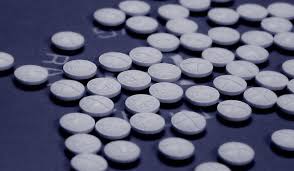New drugs strategy to tackle emerging threats
Dangerous psychoactive substances and county lines gangs will come under increased pressure from law enforcement following the launch of a new anti-drug policy.
Dangerous psychoactive substances and county lines gangs will come under increased pressure from law enforcement following the launch of a new anti-drug policy. The Home Offices Drug Strategy promises a stronger and more flexible police response to narcotics to restrict supply chains used by organised criminals. The document, published on Friday (July 14), outlines plans to tighten border checks to reduce importation and improve international intelligence sharing. It also focuses on early intervention to promote wellbeing among young people and reduce overall demand. Commander Simon Bray, the National Police Chiefs Council lead for Drugs, said: Drugs are the root cause behind countless burglaries, thefts and robberies, and are often associated with anti-social behaviour and public concern. The government has set out their new strategy for tackling the complex harms and issues associated with drugs and police will play our part in delivering it. The strategys launch coincides with the release of new figures showing 2.7 million (eight per cent) of 16-59-year-olds took illegal drugs in 2015/16. This is down from 10.5 per cent ten years ago but emerging threats like synthetic cannabinoids and chemsex drugs are placing increasing pressure on police. County lines gangs where urban criminals use mobiles and couriers to deal remotely in rural areas are now also active in at least 71 per cent of English and Welsh forces. To help address these challenges the Government has committed to new legislation to close down mobile phone lines being used for drug dealing. A Home Office-led working group will be created to develop actions against county lines gangs across policing and other sectors. Police guidance on tackling cannabis cultivation will also be refreshed, and current training provision will be evaluated. Alongside increased enforcement, the strategy promises to help addicts break their habits and prevent more people becoming addicted in the first place. Drugs cost society £10.7 billion in policing, healthcare and crime and drug-fuelled theft alone costs an estimated £6 billion per year. However, every £1 spent on treatment is believed to save another £2.50. The Home Office will create a new National Recovery Champion to ensure adequate housing, employment and mental health services are available. Demand will be tackled through deterrent work including an expansion of the Alcohol and Drugs Education and Prevention Information Service. A new psychoactive substances intelligence system will ensure the treatment response stays ahead of development in narcotics. This system, devised by Public Health England, will cut the wait between drug-related harms emerging and responses being prepared. Medical experts will also analyse research into new psychoactive substances to identify the most effective clinical responses. Hardyal Dhindsa, alcohol and substance misuse lead for the Association of Police and Crime Commissioners, described the new strategy as a positive step towards addressing some of the harms caused by drugs. In our governance role for the police service, PCCs look forward to engagement with the Government and sector partners to play our part in the co-ordinated, partnership based approach within this vitally important area of public health and safety, he said. Home Secretary Amber Rudd said: This government has driven a tough law enforcement response in the UK and at our borders, but this must go hand in hand with prevention and recovery. This new strategy brings together police, health, community and global partners to clamp down on the illicit drug trade, safeguard the most vulnerable, and help those affected to turn their lives around.


